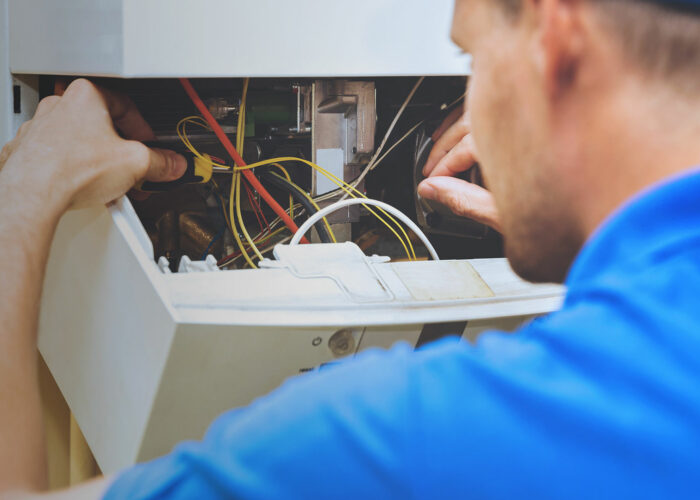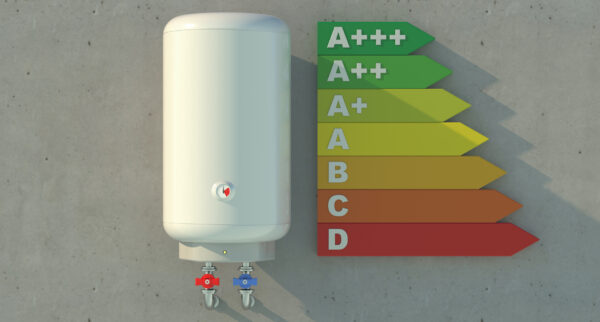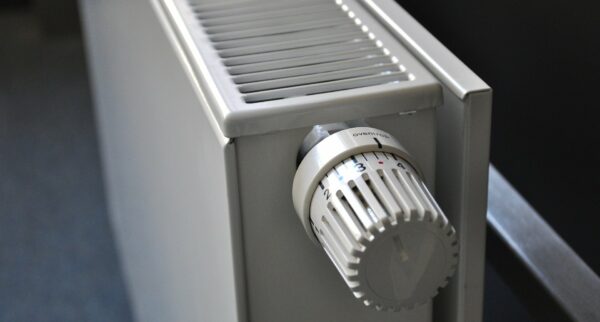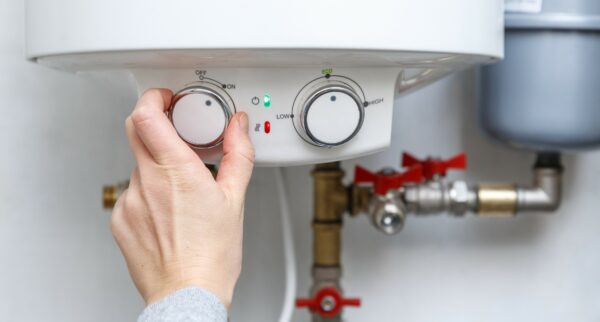Call us today 0207 32 32 999
An overheating boiler can be a serious problem. It occurs for a number of different reasons, ranging from limescale build-up and blockages to faults within the unit itself.
Usually when a boiler overheats, the unit will recognise that heat is rising to an unsafe level, triggering a safety feature which causes it to shut down. This is a safety mechanism that has been introduced in recent years, and it’s something that all good modern boilers are fitted with.
In the past, a boiler overheating that wasn’t fixed in time would have exploded, with potentially incredibly dangerous consequences. Thankfully, this is a rare occurrence these days, but an overheating boiler should still be attended to urgently to ensure that such a situation doesn’t occur.
If you’re concerned that your boiler is overheating, take a look at some of the most common reasons for this problem, and consult your engineer to learn more about what needs to be done to get your boiler back in full working order.
How to recognise an overheating boiler
In many cases, the main symptom of an overheating boiler is a shutdown. Modern boilers will stop working immediately if they have become unsafe. Often this occurs when the boiler has overheated, and pressure within the boiler has risen to a dangerous level. To stop pressure rising so far that the unit explodes, the boiler will stop working.
If your boiler stops working and overheating is suspected, make sure you turn off the water before you do anything else. This will stop water running into the unit if any other safety measures fail, and it’ll reduce the risk of pressure building in the boiler. If water continues to run into the unit, it can turn into steam that rapidly increases boiler pressure, which then leads to an explosion.
Once you’ve turned off the water, it’s best to talk to an engineer about what might have caused the problem before trying to get the unit back up and running again. A boiler overheating can be a risky issue to fix, so unless you have the required skills and knowledge, it’s something that’s best left to the experts.
What causes a boiler to overheat?
There are several reasons why a boiler might overheat, so it isn’t always immediately obvious which problem has led to the overheating. Take a look at some of the most common causes to see which one your boiler might be affected by.
Limescale build-up
All appliances that use water can be affected by limescale, and boilers are no exception. A limescale problem can build up within boilers over time. If this limescale is deposited on the heat exchanged, it can spell trouble for the boiler.
All boilers have a heat exchanger, which heats water using hot gas so that hot water can circulate well around every radiator in the house. If there is too much limescale on the heat exchanger, water flowing through it will be blocked, and the boiler then runs the risk of overheating.
Fortunately, this issue can be spotted before the boiler overheats. When limescale has built up, the boiler will start to make a whistling noise due to the water being restricted. If this occurs, make sure you contact your engineer and talk to them about how to fix the limescale build-up before your boiler stops working completely.
Failed thermistor
Boilers contain a thermistor, which is the piece of kit responsible for measuring the temperature of the water. When it goes wrong, water temperature can rise to unacceptable levels, and that may well cause the entire unit to overheat.
If a failed thermistor is to blame for your overheating boiler, then you’ll need to consult a heating engineer immediately. A qualified engineer will be able to assess the thermistor and decide whether or not it will need to be replaced. Quite often, thermistors have to be replaced to fix an overheating boiler.
System blockage
Old heating systems sometimes suffer from blockages, which can occur anywhere in the heating system. Unfortunately, these blockages can also result in an overheating boiler, and that’s all the more likely if the blockages are significant.
If the heating system has been making a lot of noise, or some radiators have been failing to heat up properly, it’s quite likely that there’s a blockage in the system. So, take steps to clear these blockages by flushing the system before your boiler overheats and causes more serious problems.
Boiler overheating when hot water is on
Faults within the boiler itself can also cause it to overheat. One of the main culprits to be aware of here is the pump, which circulates water around the system. Any issues that cause this pump not to work will result in hot water staying within the boiler. If this continues for a period of time the boiler will inevitably start to overheat.
Damaged or faulty pumps can be fixed, so a faulty pump might not mean that a new boiler is required, but often pumps will need to be replaced to get the boiler working properly again. Speak to your engineer about whether a problem with the pump could be causing your boiler to overheat to find out what needs to be done to solve the issue.
How to stop a boiler overheating before it happens
An overheating boiler can be a scary prospect, but there are plenty of steps that you can take to ensure that this issue doesn’t happen in the first place.
We recommend that boilers are serviced regularly. This is key to avoiding dangerous problems like overheating. Engineers are best placed to advise on any repairs that need to be done to boilers before a problem causes a unit to become unsafe, and shut down or overheat. Old boilers should also be replaced with newer units, as modern boilers provide all the required safety features to prevent the dangers associated with overheating.
—
If your boiler is overheating, make sure you turn off the water and contact an engineer straight away. An overheating boiler will usually mean a system shut down, but if it doesn’t the situation can quickly become hazardous. Get in touch with our team to find out more about overheating and how to prevent it.





